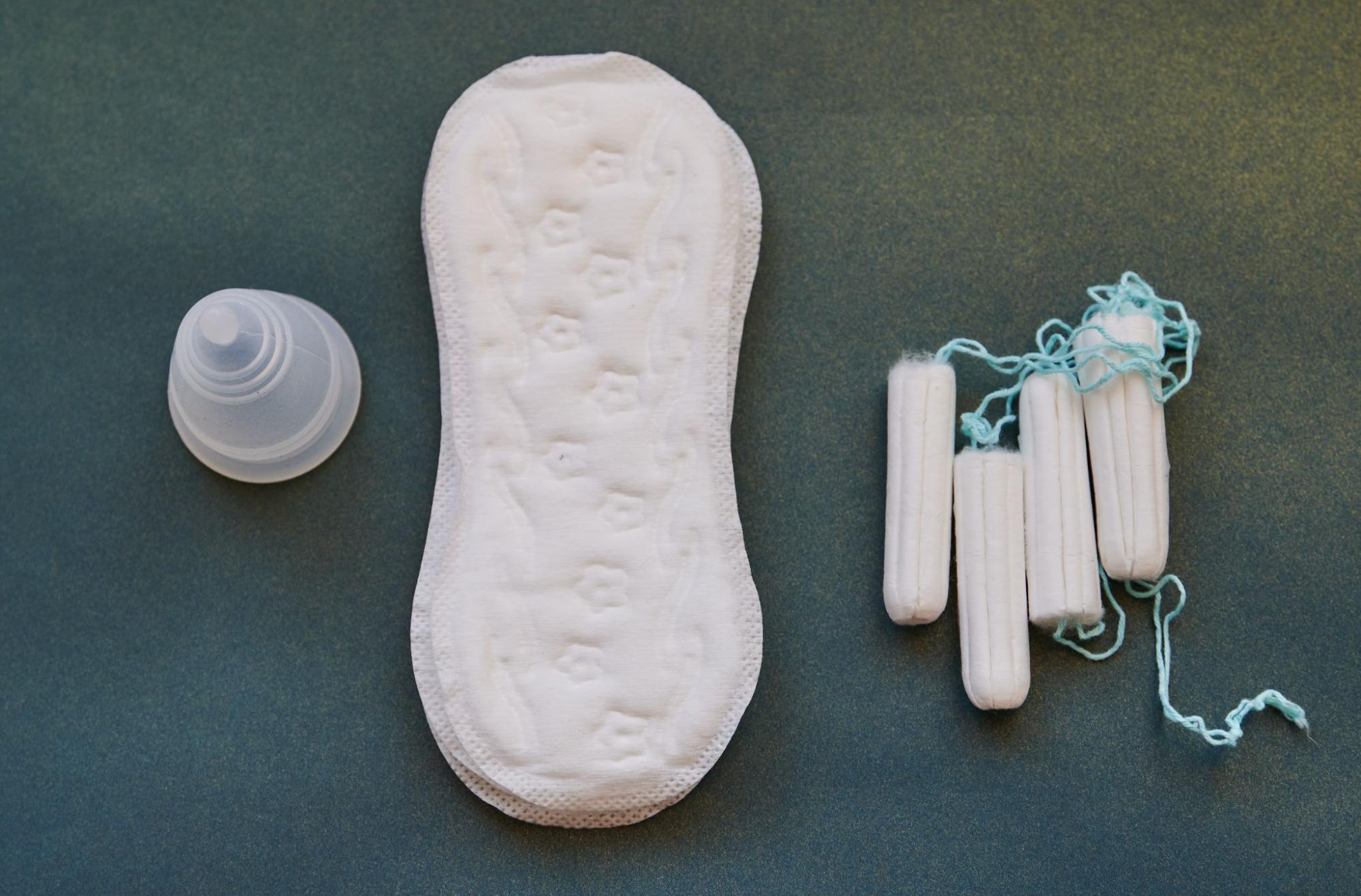End tax on menstrual products, Chinese women say
Nearly 20 countries have scrapped or lowered taxes on feminine hygiene products, but China is not one of them. Chinese women are calling for change.

Agricultural products, water, and books. These are just three of the hundreds of items that are taxed less than other commodities in China because they are classified as “basic necessities.” However, for most Chinese women, there’s one thing they need on a monthly basis but is notably missing from the list: menstrual products.
This baffling categorization of feminine hygiene goods is the subject of a heated debate that has taken hold on Chinese social media lately, with a coalition of women petitioning for what they see as “essential items” to be considered tax-free under China’s soon-to-be-issued law on value-added tax (VAT), which is collected by authorities in stages as goods and services are produced and marketed. When products hit shelves, VAT is often incorporated as a proportion of the sales price.
The online campaign was spurred by a post shared on September 26 by the WeChat public account of “Period Pride” (月事骄傲 yuèshì jiāoào), a Sichuan-based nonprofit organization that advocates for better access to and awareness of menstrual care. The article puts a spotlight on China’s proposed VAT law, whose full text has been made public to solicit comments.
According to the draft legislation, period-care items such as sanitary pads and tampons are subject to a 13% VAT, the highest-possible rate for most commercial goods, including designer bags and cosmetics. In contrast, items deemed “necessary” for everyday life by Chinese lawmakers — such as gas, salt, and even magazines — are charged a 11% VAT.
The document also sets apart a special category of goods that are exempt from VAT on unique grounds. Tools for people with disabilities, imported devices for scientific purposes, and products directly sold by farmers all belong to this category.
Meanwhile, the draft upholds a long-standing tax-free policy for contraceptive methods such as condoms and birth control medication, which was implemented in the 1980s when a nationwide family planning program was underway to contain China’s population growth. At the time, the government decided to remove the VAT on all birth control options in order to lower their prices and therefore increase usage.
In the article, the group argues that because period-related products like tampons, pads, and menstrual cups are required by millions of menstruating women and girls in China, lawmakers should recognize them as “essentials” and abolish — or at least reduce — the levy on them.
“If you have been paying attention to topics like ‘period poverty’ and ‘period shame,’ or you care about women’s well-being, don’t hesitate to express your thoughts and put forth your suggestions,” the group wrote in the article, which also contains instructions on how to submit responses to the proposed law via mail or online.
“We don’t have the power to determine if the tax policy will change or not,” reads the ending of the piece. “But we can voice our opinions loudly and try to break the widespread taboo surrounding menstruation by not avoiding words like ‘period’ (月经 yuèjīng) and ‘sanitary pads’ (卫生巾 wèishēngjīn). This is our right, and this is our mission.”
The passionate message quickly struck a nerve on Chinese social media, where hundreds of thousands of supporters shared calls for change and posted receipts of their replies to the proposed law. By September 28, the hashtag “sanitary pads tax-free” (#卫生巾 免税#) had garnered 33 million views on Weibo, with a string of influential accounts focusing on women’s rights issues further spreading the plea.
“Please share this article,” wrote @她刊iiiher, a Weibo account with nearly 3.3 million followers, on September 27, two days before the public comment period ended. “It just doesn’t make sense that sanitary pads and designer bags are subject to the same VAT rate,” read one comment out of nearly 1,000 replies the post has received.
“I hope that this campaign is not just a discussion about taxation but also will make talking about menstruation less of a taboo,” another Weibo user wrote.
Widely known as the “tampon tax” or, in Chinese, “period tax” (月经税 yuèjīng shuì), the levy on sanitary products isn’t exclusive to China. For instance, in Switzerland, period products are currently taxed at the “standard rate” of 7.7% along with cars, watches, and alcohol — as opposed to the reduced 2.5% tax imposed on most everyday items such as groceries.
However, over the last few years, equal rights campaigners have been calling for the abolition of what they described as an “unjust” practice, arguing that because women have no choice whether to get their period or not, menstrual items should be classified as a basic need exempt from taxation. Activists also say that the levy particularly burdens poor women, creating a phenomenon known as “period poverty,” in which more than a quarter of menstruating women and girls around the world — some 500 million people — have no choice but to miss out on school or work because they can’t afford sanitary items, according to a study by the World Bank.
In response to the petitions, a growing cohort of governments have revised their measures on feminine hygiene products. Since Kenya became the first country to scrap the tax on sanitary goods in 2004, at least 17 countries have followed suit, including India, Canada, and Australia, which once considered the products a “luxury.” Among the latest countries to pass laws to eliminate the tampon tax are Mexico, Namibia, and Britain.
Across Europe, more than a dozen countries have reduced the VAT on sanitary products, with Italy the latest to do so this year. In the U.S., tampons and similar products are tax-exempt in a handful of states, including Maryland and New Jersey. In 2020, Scotland became the first country to pass a bill that ensures sanitary goods are free and accessible for all who menstruate, including tampons and pads in public facilities nationwide.
In China, the push to end the tampon tax surged into the national consciousness in the summer of 2020, when a Weibo post highlighting the issue of “period poverty” gained traction. The viral post included two screenshots of a product page on Taobao, China’s biggest ecommerce site, where unbranded pads that were not individually wrapped were put up for sale by an unidentified seller for an unusually cheap price. For Chinese women who had regarded high-quality sanitary pads as a commonly accessible item, the post revealed the unconformable truth that safe menstrual supplies were still out of reach for many low-income people.
In response to the post, many internet users joined an online movement calling for a reduction to sales tax on feminine hygiene products. The conversation later led to a grassroots campaign where students and teachers across the country placed free menstrual products outside bathrooms at their schools.
For the Chinese government, the largest sources of tax revenue are levied on sales, such as VAT. But after a slew of aggressive tax cuts to boost its economy, including a revamp of the VAT system in 2016, China’s tax income weakened to 13.8% of gross domestic product in 2022 from 18.5% in 2014.
The draft VAT law, which was reviewed by the Standing Committee of the National People’s Congress (NPC) for the second time in September before being open for public comments, largely retains China’s current VAT rules, albeit with some modifications aimed at providing clearer definitions, refining the range of taxable and non-taxable items, and introducing a new VAT refund mechanism, among other adjustments.
Before the proposed legislation, period-care items have always been taxed like most consumer goods in China. But for those who have taken part in the campaign advocating for an end to the levy, they see the new law as an opportunity to change the status quo.
Amid the chorus of support, some activists say that axing the “tampon tax” is only the beginning of the fight to combat period poverty. Some cited a 2022 report by advisory firm Tax Policy Associates, which concluded that even after the British government abolished the levy on menstrual goods, “at most, tampon prices were cut by around 1%, with the remaining 80% of the benefit retained by retailers.” Others insisted that the distribution of free pads may ultimately be the only way to ensure access to period products.
“Tax abolition first! And then we need to ask for a price decrease!” wrote a woman on Weibo. “Let’s make sure that we can actually benefit from this cause.”







